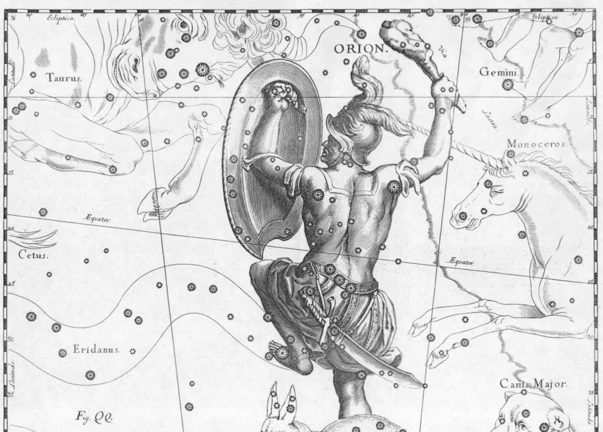Imagine gazing at the night sky, marveling at the mystical beauty of twinkling stars forming patterns in the darkness. Ancient astronomers looked up and saw not just random lights, but meaningful constellations that held deep significance. In the ancient world, the study of astrology and the interpretation of constellations played a crucial role in understanding human destiny and the broader connections between the celestial and terrestrial realms. Through this article, we will explore the origins of ancient astrology, the role of constellations, the unique constellation systems of ancient civilizations, the symbolism and mythology behind constellations, and how modern interpretations continue to shape our understanding of the stars above.
Contents
- The Origins of Ancient Astrology
- The Role of Constellations in Ancient Astrology
- Ancient Civilizations and Their Constellation Systems
- Symbolism and Mythology of Constellations
- Astrology Today: Modern Interpretations of Ancient Constellations
- Conclusion
-
Frequently Asked Questions
- Q: How did ancient civilizations interpret the constellations?
- Q: Were all ancient civilizations’ constellations the same?
- Q: Did ancient astrologers believe in the zodiac signs?
- Q: Did ancient civilizations use the same constellations as we do today?
- Q: How did ancient civilizations map the skies?
- Q: Did the ancient Greeks contribute to the study of astrology and constellations?
- Q: Were the constellations only used for astrology?
- Q: Are there any notable mythologies associated with constellations?
- Q: How do modern interpretations of constellations differ from ancient interpretations?
- Q: Does ancient astrology still influence astrology today?
- References
-
Frequently Asked Questions
- 1. What is the significance of constellations in ancient astrology?
- 2. How did ancient civilizations utilize constellations in their astrological practices?
- 3. How do constellations influence interpretations in ancient astrology?
- 4. What were the constellation systems used by ancient Egyptian astrologers?
- 5. What role did constellations play in Mesopotamian astrology?
- 6. How did Greek civilizations perceive constellations in their astrological practices?
- 7. Which are the twelve zodiac signs and what do they symbolize?
- 8. What are some notable mythologies associated with specific constellations?
- 9. How are ancient constellations interpreted in modern astrology?
- 10. Does ancient astrology and the significance of constellations still hold relevance today?
- References
- Read More
The Origins of Ancient Astrology
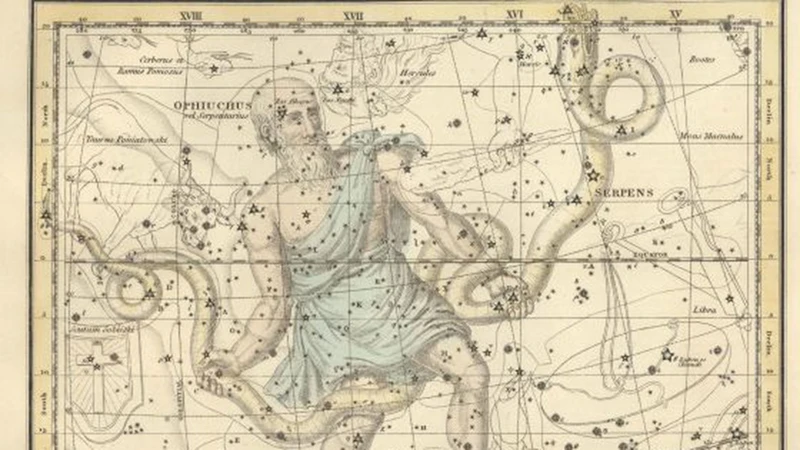
-
Ancient astrology has its roots in the early civilizations of Mesopotamia, Egypt, and Greece. These cultures believed that the positions and movements of celestial bodies held significant meaning for human life and events on Earth. The Mesopotamians, considered the earliest astrologers, created the first astrological system around 3000 BCE. They observed the stars and planets, recording their positions and correlating them with earthly events. The Egyptians also developed a sophisticated astrological system, associating specific constellations with their deities and using astrology for religious and agricultural purposes. The Greeks, influenced by the Mesopotamians and Egyptians, further developed the study of astrology, attributing divine meaning to the constellations and astrology’s role in predicting the future.
-
can be traced back to the belief that celestial bodies influenced human destiny. Ancient cultures saw a direct connection between the movements of the stars and planets and the events unfolding on Earth. They believed that by studying the positions and patterns of these celestial bodies, they could gain insight into the past, present, and future. This belief in the interconnectedness of the cosmos and human life laid the foundation for ancient astrology and the subsequent development of constellation systems. It was through the meticulous observations and interpretations of ancient astronomers that astrology found its place in the ancient world.
-
The origins of ancient astrology are closely intertwined with the development of calendars. As civilizations sought to understand and predict the seasons, they looked to the celestial bodies for guidance. By tracking the movements of the sun, moon, and stars, ancient astronomers were able to create calendars that aligned with the cycles of nature. These calendars, in turn, allowed for the observation and interpretation of the constellations and their significance. Over time, as civilizations evolved and exchanged knowledge, astrology became a complex system of divination, offering insights into various aspects of human life, such as health, relationships, and destiny.
The Role of Constellations in Ancient Astrology
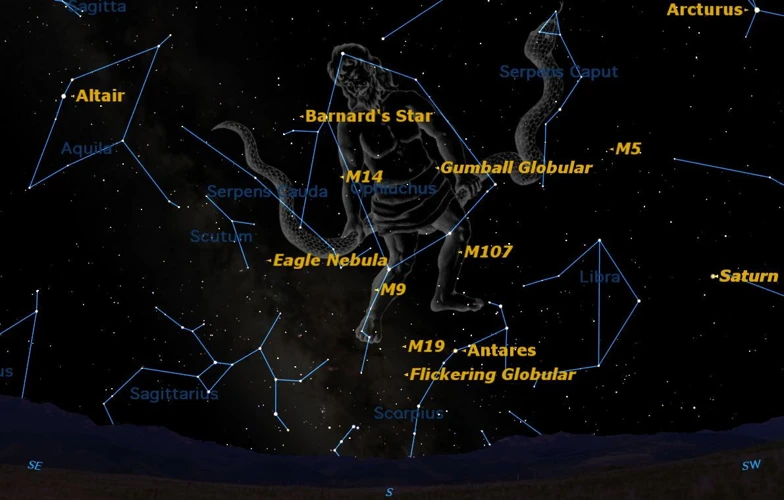
-
The role of constellations in ancient astrology was paramount. Ancient civilizations believed that the positioning and alignment of constellations had a profound influence on human affairs and the course of events on Earth. Constellations served as celestial markers, allowing astrologers to track the movements of important celestial bodies. By observing and interpreting the patterns formed by these constellations, astrologers could predict auspicious or inauspicious times for various activities, such as planting crops or embarking on journeys. They believed that each constellation possessed unique qualities and characteristics, which would affect the lives and destinies of individuals born under them. The constellations were seen as powerful symbols that represented different aspects of human existence, from love and war to wisdom and fertility. They provided a visual language through which the celestial and terrestrial realms could communicate, enabling astrologers to interpret and decipher the messages encoded in the stars.
Ancient Civilizations and Their Constellation Systems
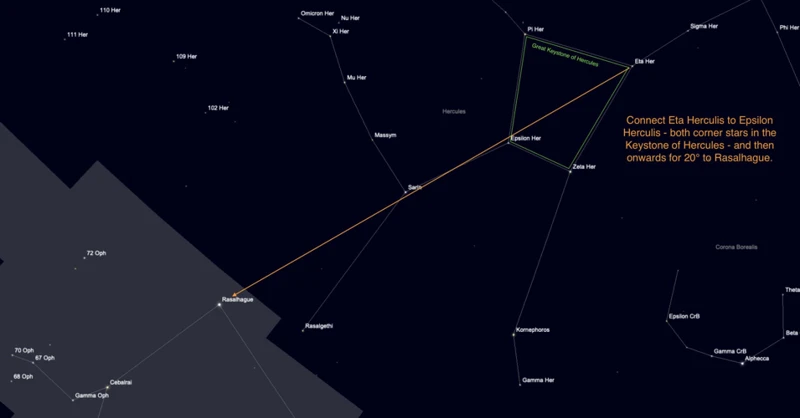
Ancient civilizations developed their own unique constellation systems, each with its own set of interpretations and beliefs. In Egypt, the constellation system was closely tied to the religious and agricultural practices of the time. They identified various constellations and associated them with their gods and goddesses, using astrology for religious ceremonies, agricultural planning, and guiding the spirits of the deceased. The Mesopotamians, on the other hand, had a highly organized system of celestial divination. They cataloged the movements of celestial bodies and developed intricate methods of interpretation. Their astrological practices influenced other cultures, including the Greeks, who further refined and expanded the constellation system. The Greeks assigned mythological figures and stories to the constellations, creating a rich tapestry of symbolism and meaning. Each civilization’s constellation system reflected their unique cultural beliefs and values, providing insights into their understanding of the universe and its connection to human life.
Symbolism and Mythology of Constellations
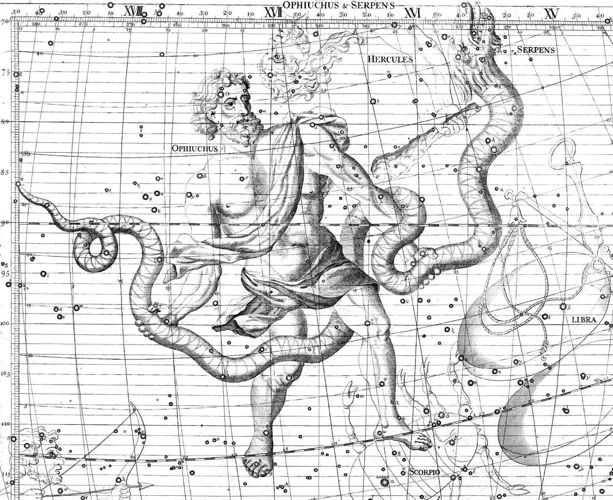
The symbolism and mythology behind constellations add a layer of enchantment and depth to ancient astrology. Each constellation carries its own story and significance, often rooted in mythological tales from different cultures. For example, the Twelve Zodiac Signs in Western astrology have their origins in Greek and Mesopotamian mythology. Aries, the Ram, symbolizes the Golden Fleece from Greek mythology, while Gemini, the Twins, represents the myth of Castor and Pollux. These mythological narratives not only give meaning to the constellations but also provide a framework for understanding human characteristics and behaviors associated with each sign. By delving into the rich symbolism and mythology of constellations, astrologers dive into a realm of storytelling and archetypes that deepens the understanding of the cosmic forces at play in the lives of individuals.
Astrology Today: Modern Interpretations of Ancient Constellations
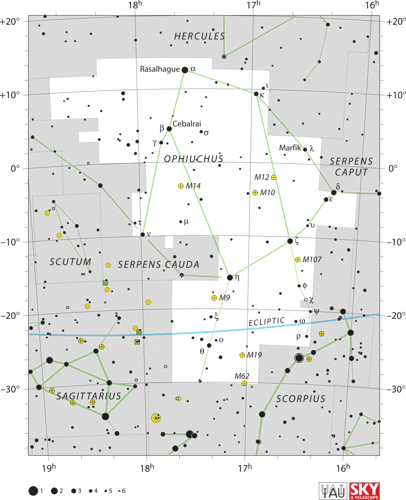
-
In the modern era, astrology continues to thrive, with people seeking guidance and insight from ancient constellations. While the fundamental principles of ancient astrology remain intact, modern interpretations have adapted to the changing cultural, social, and technological landscape. Today, astrologers take into account not only the traditional zodiac constellations (click here to learn more) but also incorporate newly discovered celestial bodies and their influences. The emphasis on self-awareness and personal growth has become a significant focus in modern astrology, with individuals utilizing it as a tool for psychological insight and self-reflection.
-
With the advent of the internet, astrology has become more accessible than ever. Online platforms offer personalized birth chart readings and horoscopes, allowing individuals to explore their unique astrological profiles. Social media has also played a role in astrology’s modern resurgence, with astrology-themed accounts gaining popularity and providing bite-sized insights and guidance to a vast audience. Additionally, books, podcasts, and workshops dedicated to astrology attract a wide range of enthusiasts, promoting a deeper understanding and engagement with ancient constellations.
-
It’s important to note that while ancient constellations form the foundation of modern astrology, new interpretations and astrological systems have emerged. One example is the introduction of Ophiuchus, often referred to as the “13th zodiac sign.” Ophiuchus is associated with healing and transformation, challenging the traditional twelve-sign zodiac system. This addition highlights the evolution of astrology and the ongoing exploration of the cosmos (click here to learn more).
-
Astrology has also found its way into various professional fields, such as psychology and counseling, where it is used as a complementary tool for understanding human behavior and motivation. Additionally, some businesses and organizations utilize astrology to gain insights into market trends and consumer behaviors. This integration of astrology into different aspects of modern life showcases its enduring significance and adaptability in various contexts.
Conclusion

In conclusion, the significance of constellations in ancient astrology cannot be understated. They served as a bridge between the celestial and terrestrial realms, providing a means to understand and interpret the cosmos. The origins of ancient astrology can be traced back to the early civilizations of Mesopotamia, Egypt, and Greece, where the movements of celestial bodies were believed to influence human destiny. These ancient cultures developed intricate constellation systems, mapping the skies and finding symbolism and meaning in the patterns of stars. Furthermore, the mythology surrounding constellations added depth and storytelling to the study of astrology. Today, although our understanding of the universe has expanded, the study of ancient constellations and their interpretations continues to inspire and influence modern astrology. Through the knowledge passed down from ancient civilizations, we can still connect with the timeless truths and cosmic wonders of the night sky.
Frequently Asked Questions

Q: How did ancient civilizations interpret the constellations?
Ancient civilizations interpreted the constellations as celestial signs that held symbolic meanings. They believed that the positions and movements of the stars and planets could provide insights into various aspects of human life, such as love, health, and success.
Q: Were all ancient civilizations’ constellations the same?
No, different ancient civilizations developed their own unique constellation systems. For example, the Egyptians associated constellations with their deities, while the Mesopotamians focused on celestial omens for predicting events.
Q: Did ancient astrologers believe in the zodiac signs?
Yes, ancient astrologers believed in the zodiac signs and their influence on human character and destiny. They assigned specific meanings and qualities to each sign, which are still used in modern astrology today.
Q: Did ancient civilizations use the same constellations as we do today?
The basic constellations that form the patterns in the night sky have remained the same over time. However, ancient civilizations assigned their own interpretations and mythologies to these constellations, which may differ from their modern counterparts.
Q: How did ancient civilizations map the skies?
Ancient civilizations used various methods to map the skies, such as creating star catalogs and celestial globes. They meticulously observed the positions and movements of the stars and planets, mapping their patterns and correlations with earthly events.
Q: Did the ancient Greeks contribute to the study of astrology and constellations?
Yes, the ancient Greeks made significant contributions to the study of astrology and constellations. They adopted and expanded upon the knowledge of previous civilizations, attributing divine significance and mythological narratives to the constellations.
Q: Were the constellations only used for astrology?
No, the constellations had multifaceted purposes in ancient civilizations. While astrology played a significant role, the constellations were also used for navigation, religious beliefs, agricultural predictions, and cultural symbolism.
Q: Are there any notable mythologies associated with constellations?
Yes, many constellations have fascinating mythological origins. For example, the constellation Orion originates from Greek mythology, honoring a mighty hunter, and the Pleiades cluster has connections to various cultures, representing a group of sisters.
Q: How do modern interpretations of constellations differ from ancient interpretations?
Modern interpretations of constellations have evolved with scientific advancements and cultural shifts. While ancient interpretations focused on divine and mystical meanings, modern interpretations tend to emphasize astronomical knowledge and psychological symbolism.
Q: Does ancient astrology still influence astrology today?
Yes, ancient astrology continues to influence astrology today. Many traditional astrological practices and belief systems have been passed down through generations and still hold relevance in contemporary astrology.

